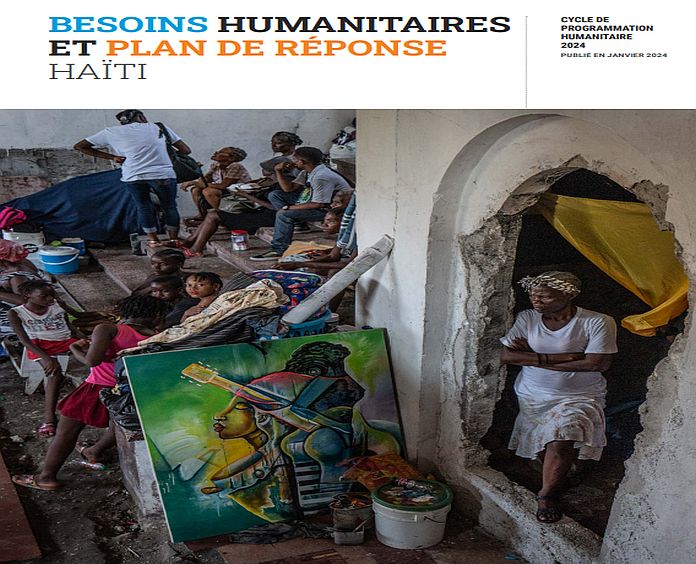By Caribbean News Global ![]()
PORT-AU-PRINCE, Haiti, (OCHA) – The Emergency Relief Coordinator, Martin Griffiths, has allocated US$12 million from the Central Emergency Response Fund to help people affected by the violence that broke out in the capital Port-au-Prince a month ago.
“The funds will go towards providing food, water, protection, healthcare, and sanitation and hygiene support to displaced people and host communities in Port-au-Prince and the neighboring department of Artibonite, which has also been affected by the violence,” UNRelief chief said Thursday.
Meanwhile, United Nations Office for the Coordination of Humanitarian Affairs (OCHA) says that the situation remains tense and volatile, with attacks on healthcare facilities aggravating the already dire situation. According to UNICEF, three out of four women and children lack access to essential public health and nutrition services in the metropolitan area.
The emergency response continues, OCHA advised:
“Yesterday, the World Food Programme provided 17,000 hot meals to displaced people in Port-au-Prince. The International Organization for Migration distributed more than 70,000 liters of water in six displacement sites across the Port-au-Prince metropolitan area.”
Healthcare in Haiti under attack by armed gangs, reports OCHA – UN
“The people of Haiti have faced a multitude of challenges over the years, encompassing political, social and economic issues, further exacerbated by recurring natural disasters. Lawlessness gang violence have cast a shadow over all aspects of everyday life, particularly in the capital Port-au-Prince, Artibonite and beyond. In 2024, approximately 5.5 million Haitians require humanitarian assistance, marking an increase from 5.2 million. Extreme violence perpetrated by armed gangs against the Haitian population has now extended to remote rural areas, as the government’s presence continues to erode. Persistent structural weaknesses have exacerbated the lack of essential basic services, with hospitals and doctors becoming targets, and the forced displacement of several hundred teachers, many of whom progressively leave the country.
“Haitian women bear the disproportionate burden of the surge in violence. Rape cases increased by 49 percent from January to August 2023, compared to the same period in 2022. Meanwhile, hospitals and schools operate intermittently at best. People are afraid to go to work, individuals in need of medical care avoid seeking treatment and parents are reluctant to send their children to school, fearing stray bullets or kidnappings. For thousands of students, 2023 marked the fourth consecutive year of interrupted school year. An estimated one million children are out of school, heightening the risk of gang recruitment for half a million children who reside in gang-controlled areas. The scarcity of access to basic services is particularly concerning, especially in light of a cholera epidemic that has affected all ten departments since the confirmation of the first case in October 2022.





